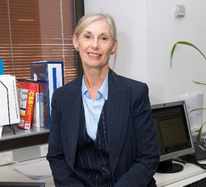In 1997, literary critic F R Leavis wrote that society tends to concentrate attention on the ‘convenient’ problems and so rejects the real solutions.
You might agree the observation still has currency. The motif is reminiscent in Tolkien’s character, Frodo, who discards his weighty helmet, belt and shield for the fray but ignores the ring, the real impediment needing attention and action.
It seems to me that the leadership role is a great place to practice the art of ‘being real’; acting on what really matters rather than ‘dressing the windows’. We restructure organisational units as if re-assembling ourselves inside our walls will really make a difference to those interacting with us from the outside.
Why does that seem easier than, say, actively working to improve amenable organisational culture, capability and delivery, and/or delving further to find out what the public really wants, for the positive outcomes we need to achieve?
How exciting to trade superficial ‘fixes’ for sustainable solutions. Complex and challenging work environments call all the more for courageous leaders of this ilk.
The stressful, sometimes noisy machinations of superficial and ‘convenient fixes’ give the appearance of activity—like ‘hollow horn blowing’, again to borrow from Tolkien—while not effecting useful change in capability, motivation and output.
Instead, might our resolution be to opt for sustainable improvement, addressing what can and should be addressed, working around what cannot be addressed to find compromise and a way through, and ‘being real’ in those choices?
Staff respect being brought into the leader’s confidence to find genuine, best solutions and improved outcomes benefiting all.
To find out more about communicating for results, visit: www.ownthegame.com.au
 Dr Glenys Drew’s extensive research and practice has greatly benefitted the field of Organisational and Leadership Development in the education sector—delivering highly regarded organisational culture-building expertise through COACH, and previously at The University of Queensland and the Queensland University of Technology. Glenys is a recognised leader in facilitating empowering 360 feedback and growth processes for leaders, contributing 12 internationally refereed publications in this field.
Dr Glenys Drew’s extensive research and practice has greatly benefitted the field of Organisational and Leadership Development in the education sector—delivering highly regarded organisational culture-building expertise through COACH, and previously at The University of Queensland and the Queensland University of Technology. Glenys is a recognised leader in facilitating empowering 360 feedback and growth processes for leaders, contributing 12 internationally refereed publications in this field.
